Digital Marketing Statistics, Facts & Trends
Effective lead generation strategies can have numerous benefits for businesses, ultimately leading to increased sales and revenue.
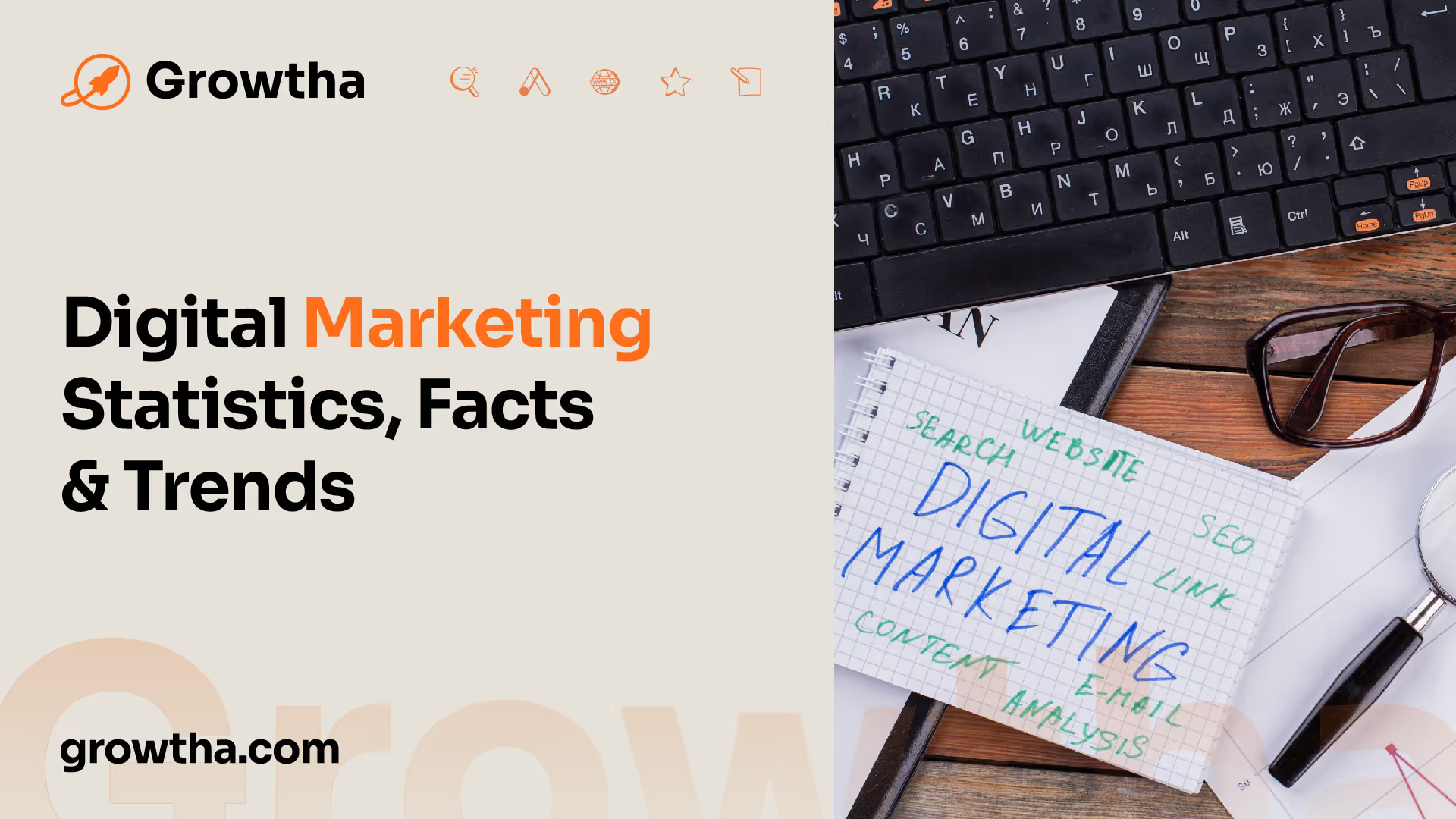

Digital Marketing Statistics, Facts & Trends
Lead Generation Strategies
In the world of digital marketing, lead generation is a crucial aspect for businesses looking to grow and succeed. It involves identifying potential customers and generating interest in their products or services. Effective lead generation strategies can have numerous benefits for businesses, ultimately leading to increased sales and revenue.
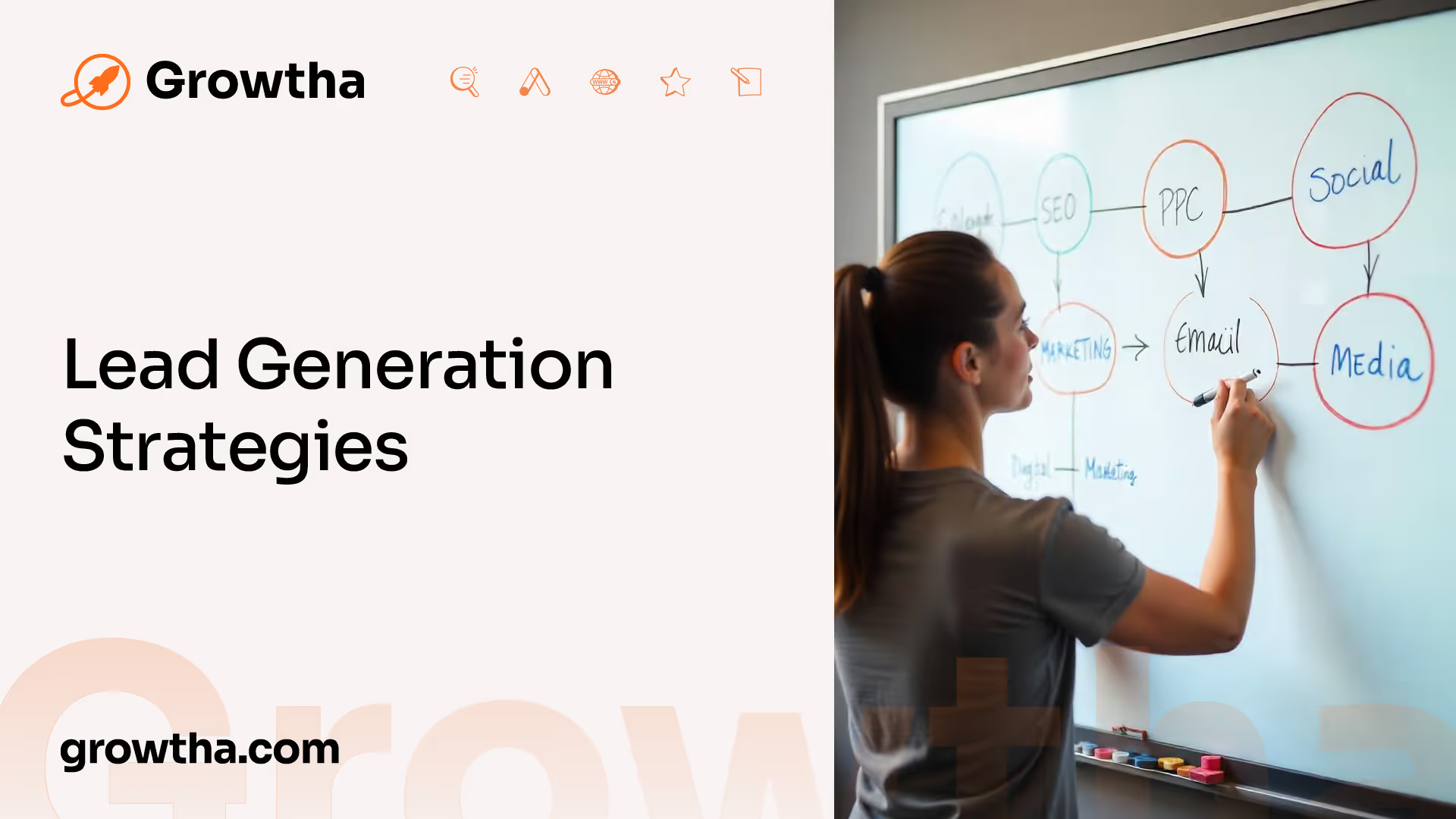
Importance of Lead Generation
Lead generation plays a pivotal role in the success of businesses. By capturing the interest of potential customers, businesses can build a database of leads that can be nurtured and converted into paying customers. This allows for targeted marketing efforts and personalized communication, resulting in higher conversion rates and optimized sales funnels [1].

Lead generation also enables businesses to identify and target their ideal customers. By focusing their marketing efforts on qualified leads, businesses can improve their return on investment (ROI) and establish a competitive advantage in the market [2]. Additionally, lead generation allows businesses to nurture relationships with potential customers over time, building trust and credibility.
Benefits of Effective Lead Generation
Implementing effective lead generation strategies can bring about several benefits for businesses. Let's explore some of the key advantages:
- Increased Sales and Revenue: By capturing and nurturing leads, businesses have a higher chance of converting them into paying customers. This results in increased sales and revenue.
- Targeted Marketing: Lead generation allows businesses to identify their target audience and tailor their marketing efforts accordingly. This targeted approach increases the effectiveness of marketing campaigns and improves ROI.
- Database of Potential Customers: Lead generation helps businesses build a valuable database of potential customers, enabling personalized communication and targeted marketing efforts. This database can be leveraged for future marketing initiatives.
- Optimized Sales Funnel: Effective lead generation strategies help optimize the sales funnel by focusing on qualified leads. By guiding leads through the funnel, businesses can improve conversion rates and streamline the customer journey.
- Insights and Data: Lead generation, especially when powered by AI, provides valuable insights and data on customer behavior and preferences. This data can inform marketing strategies and help businesses make data-driven decisions.
By recognizing the importance of lead generation and implementing effective strategies, businesses can unlock significant growth opportunities. Lead generation not only attracts potential customers but also allows businesses to establish strong and long-lasting relationships, resulting in sustainable success.
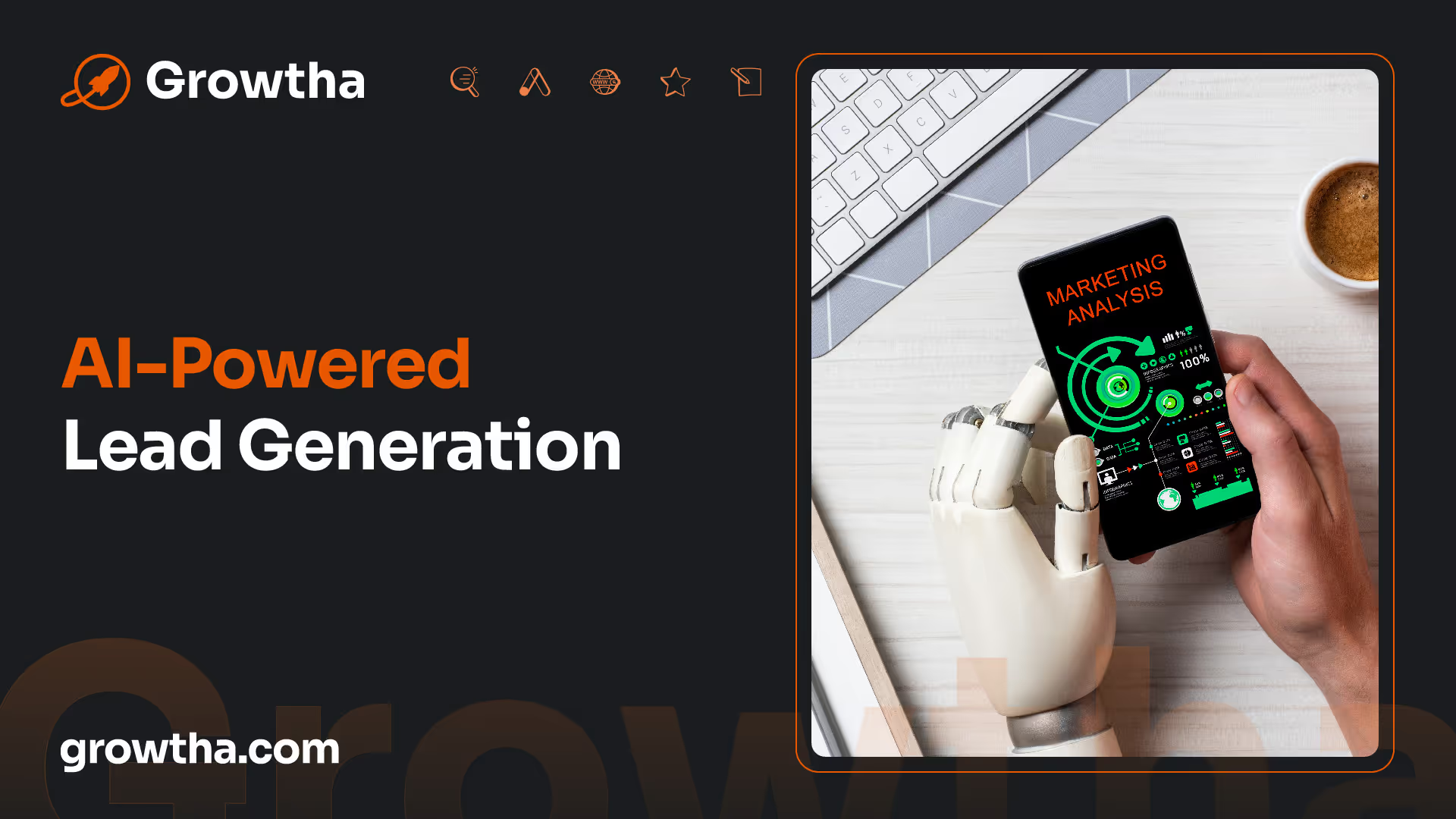
AI-Powered Lead Generation
Artificial Intelligence (AI) has revolutionized the field of digital marketing, including lead generation strategies. The integration of AI technology has opened up new possibilities and enhanced the effectiveness of lead generation efforts.
AI in Digital Marketing
AI has significantly impacted the digital marketing landscape, transforming the way businesses interact with customers and prospects. With AI-powered tools and algorithms, marketers can analyze vast amounts of data, automate processes, and make data-driven decisions. AI enables businesses to personalize marketing campaigns, enhance customer experiences, and drive targeted lead generation efforts.
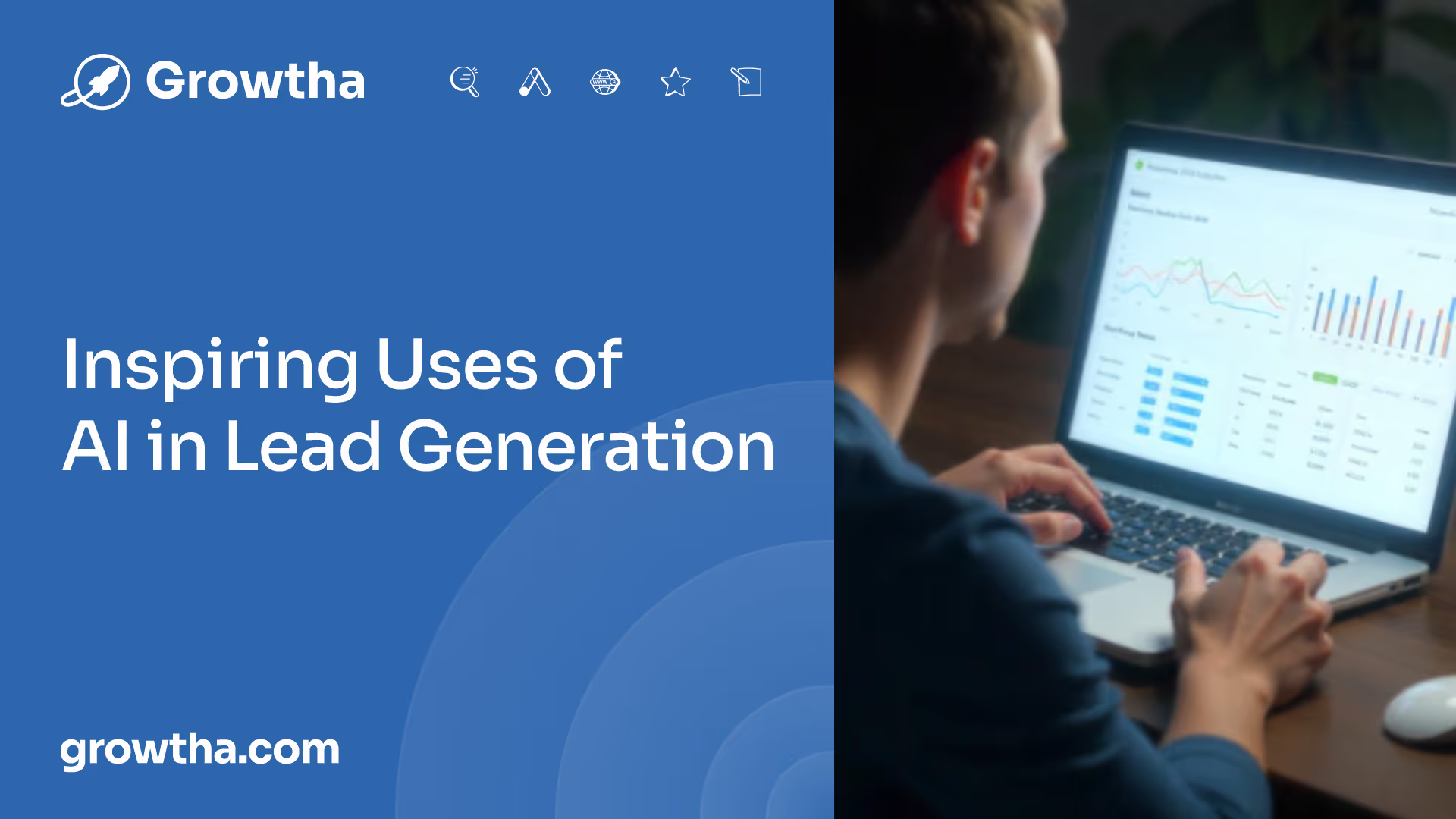
Inspiring Uses of AI in Lead Generation
- Chatbots: Chatbots are AI-driven virtual assistants that can interact with users in real time, providing personalized assistance and information. They have become instrumental in lead generation by engaging with website visitors, answering queries, and capturing leads. Companies like Sephora utilize AI chatbot technology to offer personalized shopping experiences through interactive quizzes and tailored tips, ultimately reducing customer query backlog and operational costs.
- Customer Support and Engagement: AI-powered platforms like Ada have transformed customer support by offering automated customer service solutions. These platforms can handle customer inquiries, provide personalized responses, and engage with customers on social media platforms. Brands like Air Asia, Indigo, and Zoom have leveraged Ada's AI-driven customer support platform to enhance customer experience, expand brand reach into international markets, and reduce operational costs.
- Voice Technology: Integrating AI voice technology into lead generation efforts has proven to be effective. Starbucks, for example, introduced AI voice technology with their 'My Starbucks Barista' service. This allows customers to place and modify orders using voice commands and chatbot innovation. By providing a seamless and convenient ordering process, Starbucks has driven growth and engagement.
- Personalized Recommendations: AI-powered algorithms can analyze customer data and preferences to provide personalized product recommendations. Companies like Lowe's have introduced AI-powered personal shopping assistants, such as LoweBot, to offer personalized suggestions and track inventory. This not only enhances the shopping experience but also provides valuable insights on consumer shopping trends, contributing to successful lead generation strategies.
The examples above showcase the diverse applications of AI in lead generation. As AI technology continues to advance, businesses can leverage its capabilities to streamline processes, enhance customer interactions, and achieve greater success in generating high-quality leads.
By embracing AI-powered lead generation strategies, businesses can benefit from increased efficiency, improved targeting, and enhanced customer experiences. As AI continues to evolve, it is essential for businesses to stay informed about the latest trends and developments in order to stay ahead in the competitive digital marketing landscape.
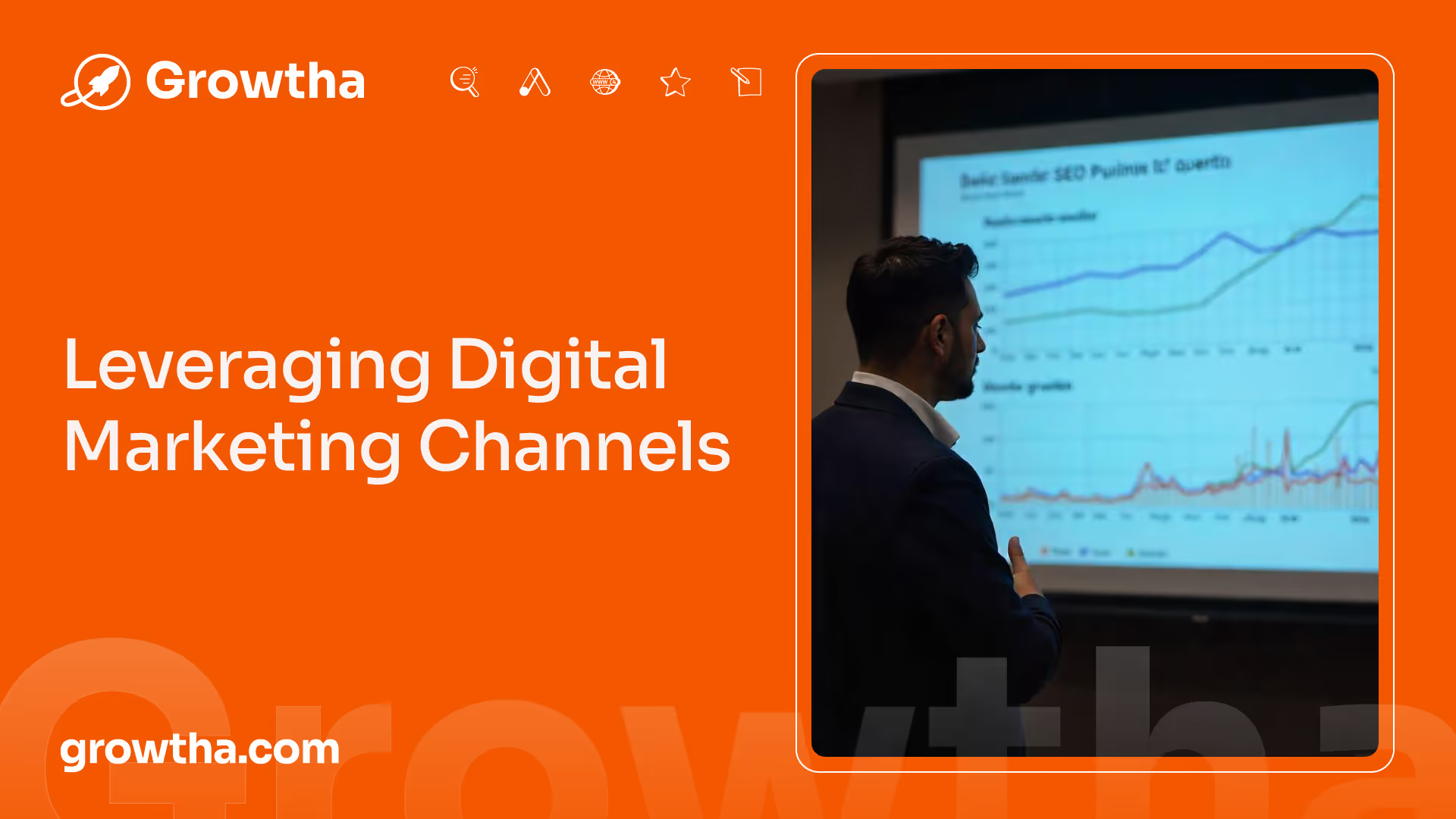
Leveraging Digital Marketing Channels
To effectively generate leads, businesses must leverage various digital marketing channels that allow them to reach and engage with their target audience. Here are five key channels that play a crucial role in lead generation strategies.
Email Marketing
Email marketing is a high-performing digital marketing channel with an average ROI of 4400% Gravital Agency. This strategy enables businesses to connect directly with their customers through personalized messages and offers. By building a strong email list and delivering valuable content, businesses can nurture leads and convert them into loyal customers.
Content Marketing
Content marketing is a powerful strategy that drives three times more leads than traditional outbound marketing Gravital Agency. By creating and sharing relevant and valuable content, businesses can engage their target audience, establish thought leadership, and build trust. Content marketing encompasses various forms such as blog articles, videos, infographics, and eBooks, enabling businesses to attract and educate their prospects.
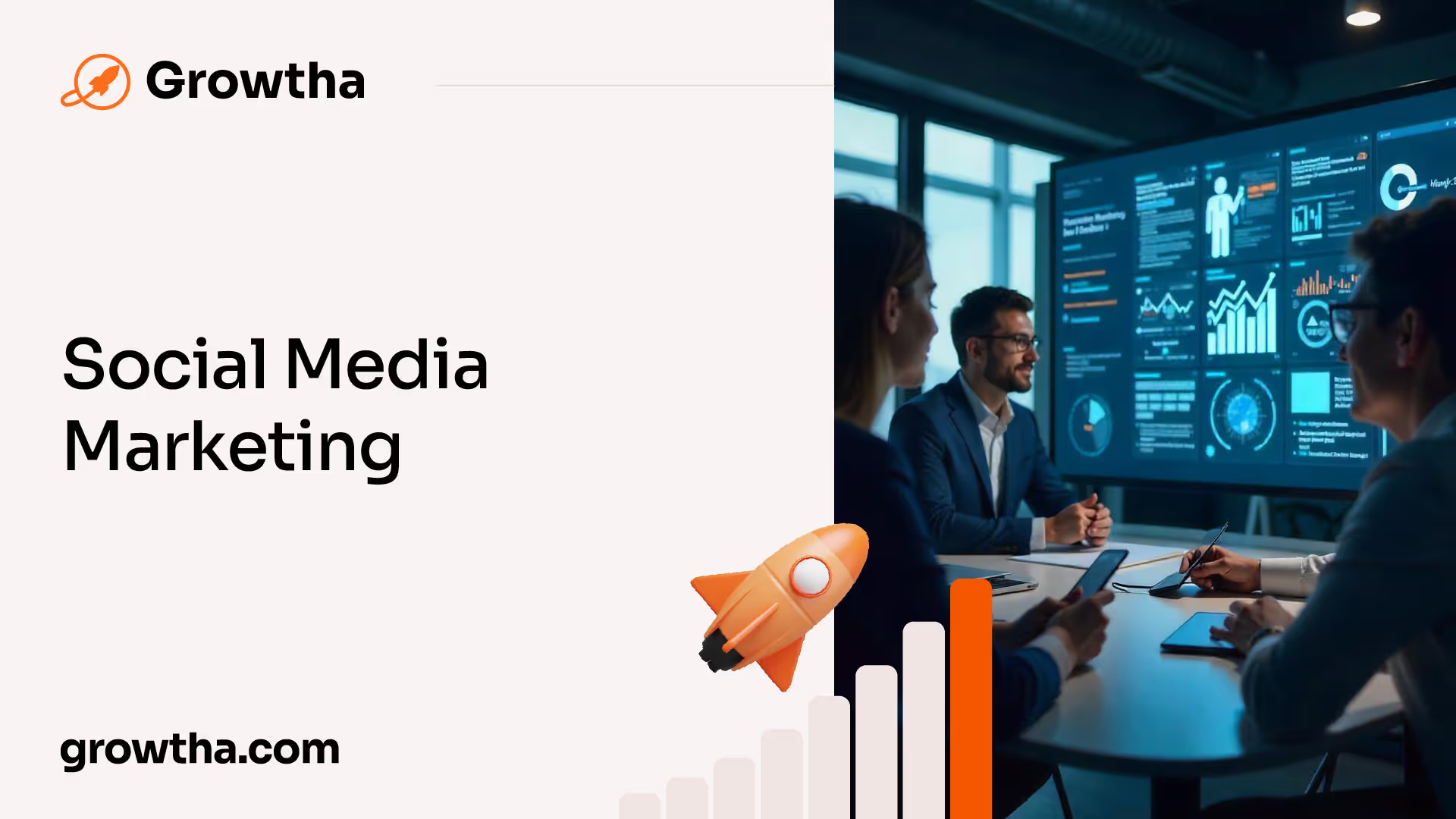
SEO (Search Engine Optimization)
With 68% of online experiences beginning with a search engine, SEO is a critical component of digital marketing Gravital Agency. By optimizing their website and content for search engines, businesses can improve their online visibility and attract organic traffic. Effective SEO strategies involve keyword research, on-page optimization, technical optimization, and link building, all aimed at ranking higher in search results.
Social Media Marketing
Social media marketing holds a prominent position in the digital marketing landscape. It allows businesses to reach and engage with their audience on popular social media platforms.
With 73% of marketers finding social media efforts effective for business growth Gravital Agency, it's evident that this channel plays a vital role in lead generation. By creating compelling content, fostering conversations, and leveraging social media advertising, businesses can build brand awareness, drive website traffic, and generate leads.
Paid Advertising
Paid advertising, such as PPC (Pay-Per-Click) campaigns, is an essential component of digital marketing strategies. It allows businesses to display targeted ads to their desired audience.
The average business makes $2 in revenue for every $1 spent on Google AdWords Gravital Agency, highlighting the effectiveness of paid advertising in lead generation. By carefully crafting ad campaigns, optimizing targeting, and monitoring performance, businesses can drive qualified traffic and conversions.
Leveraging these digital marketing channels is crucial for businesses aiming to generate leads effectively. By utilizing email marketing, content marketing, SEO, social media marketing, and paid advertising, businesses can create a comprehensive lead generation strategy that reaches their target audience and drives meaningful results.
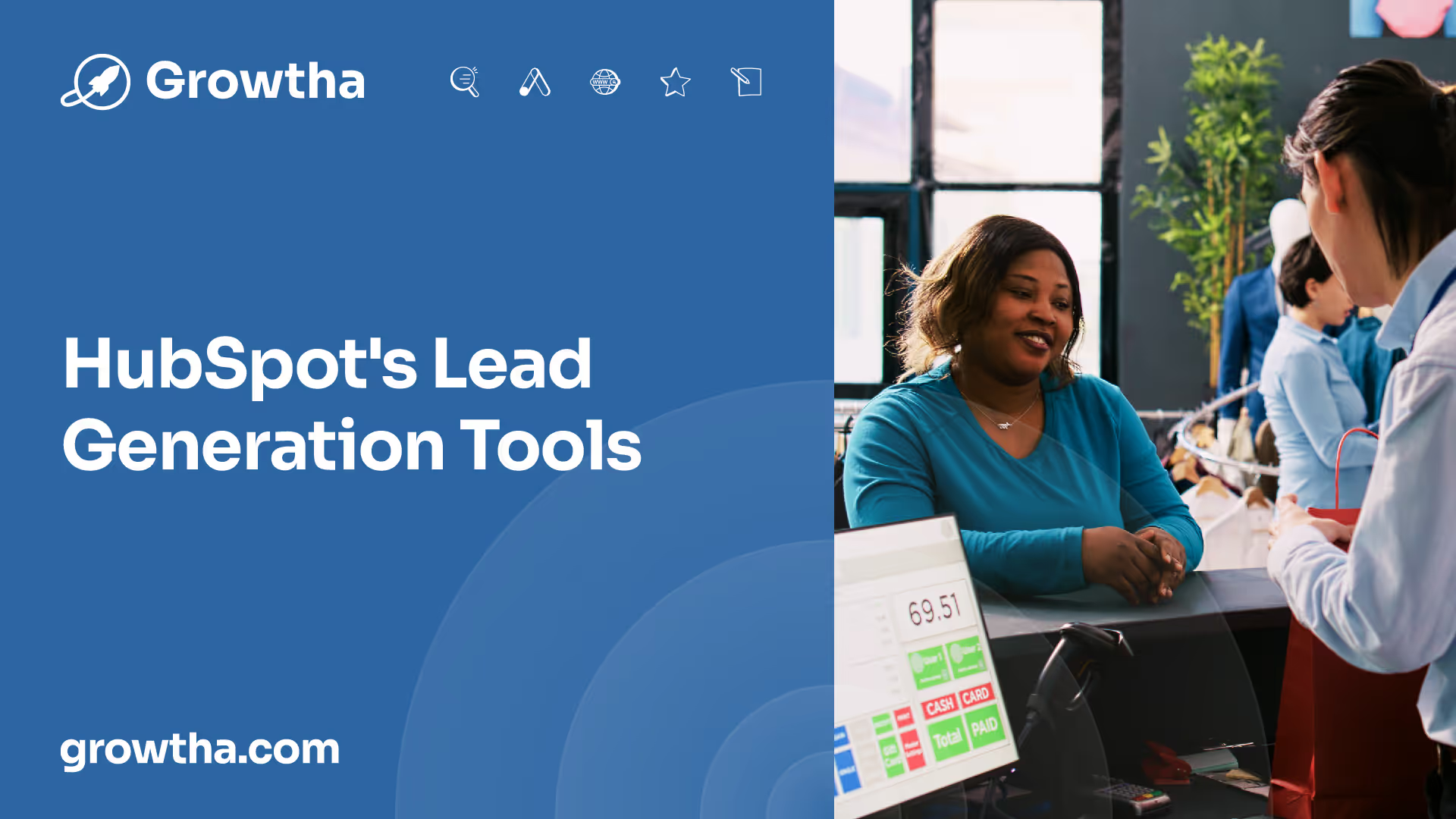
HubSpot's Lead Generation Tools
When it comes to lead generation, HubSpot offers a range of powerful tools and software solutions to help businesses effectively capture and nurture leads. These tools are designed to streamline marketing, sales, and customer service processes, providing a comprehensive approach to lead generation.
HubSpot Customer Platform
HubSpot's Customer Platform is a comprehensive suite of software solutions that brings together marketing, sales, customer service, CMS (Content Management System), operations, and commerce tools all in one place. This integrated approach allows businesses to seamlessly manage their customer interactions and optimize their lead generation efforts. With the HubSpot Customer Platform, businesses can create personalized experiences for their customers throughout their entire journey.
Free HubSpot CRM
HubSpot offers a free CRM (Customer Relationship Management) software that provides businesses with a central hub to manage their contacts, track interactions, and nurture leads. The Free HubSpot CRM allows businesses to organize their leads, track customer interactions, and gain valuable insights into their sales and marketing performance. It serves as a foundational tool for effective lead generation and customer relationship management.
Marketing Hub
HubSpot's Marketing Hub is a powerful marketing automation software that helps businesses attract, engage, and convert leads. It offers a range of tools and features to create and optimize marketing campaigns, track performance, and nurture leads throughout the buyer's journey. The Marketing Hub allows businesses to automate their marketing processes, personalize their content, and measure the effectiveness of their lead generation efforts.
Sales Hub
HubSpot's Sales Hub provides businesses with a Sales CRM software that enables them to effectively manage their sales pipeline and close deals. It offers tools for contact management, deal tracking, email tracking, and sales analytics. The Sales Hub empowers sales teams to engage with leads, track their interactions, and streamline their sales processes, ultimately driving more conversions and revenue.
Service Hub
The Service Hub by HubSpot offers customer service software that helps businesses deliver exceptional customer support and build strong customer relationships. It provides tools for ticketing, knowledge base creation, live chat, and customer feedback management. The Service Hub enables businesses to provide timely and personalized support to their customers, enhancing their overall experience and increasing customer satisfaction.
By utilizing HubSpot's lead generation tools, businesses can leverage the power of automation, streamline their processes, and create meaningful connections with their leads and customers. Whether it's through the Customer Platform, Free HubSpot CRM, Marketing Hub, Sales Hub, or Service Hub, HubSpot provides a comprehensive suite of tools to drive effective lead generation strategies and fuel business growth.
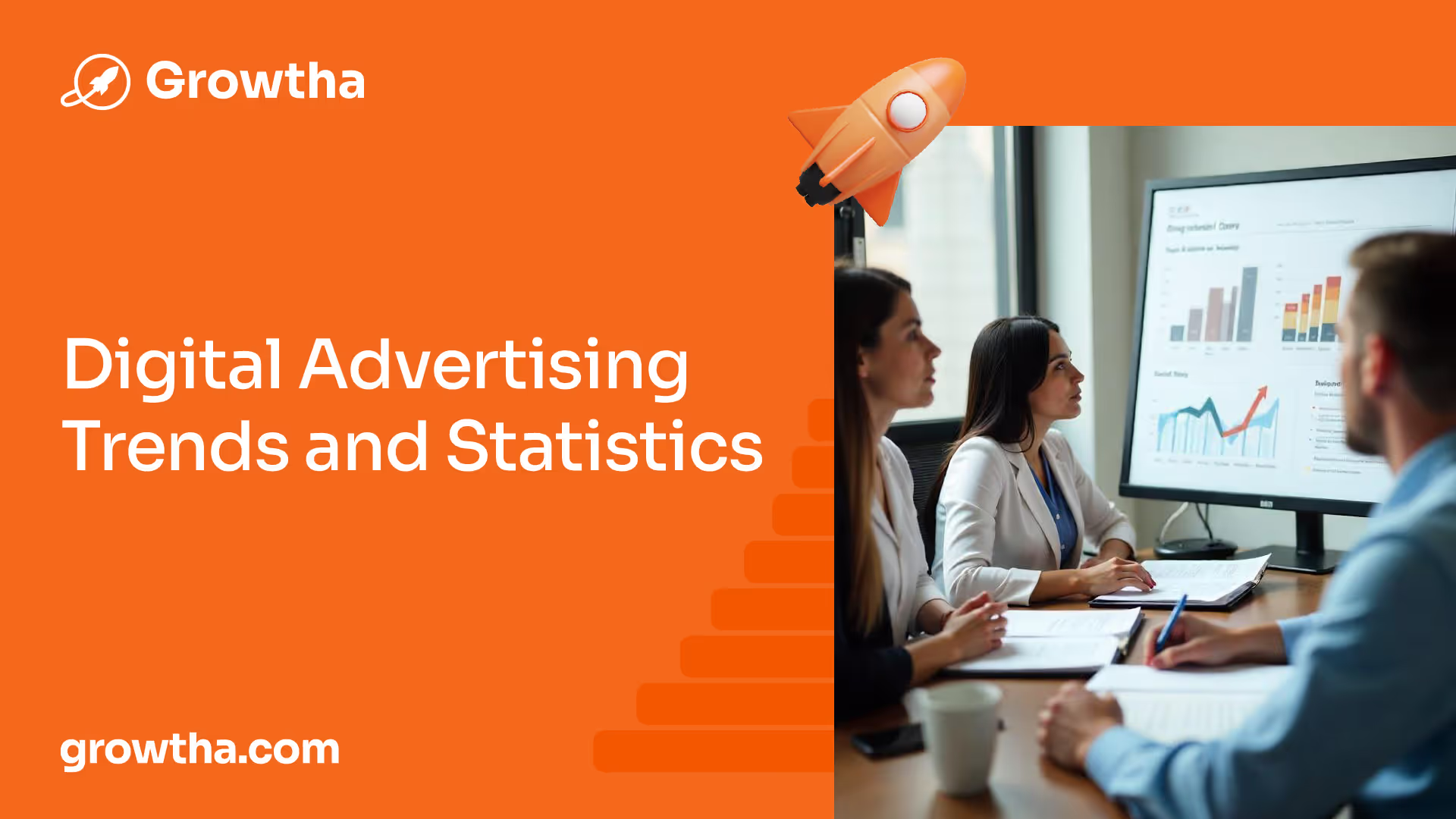
Digital Advertising Trends and Statistics
Digital advertising is a rapidly evolving landscape, with new trends and statistics shaping the way businesses reach their target audience. Understanding these trends is essential for staying competitive in the digital marketing realm.
Global Digital Advertising Spend
Digital ad spending worldwide is projected to reach $571.45 billion in 2025, which is more than double the amount spent in 2018 ($256.13 billion). This significant growth reflects the increasing importance of digital advertising as businesses recognize its effectiveness in reaching their target customers.
When it comes to regional spending, North America leads the way with total online advertising spending of $146.71 billion in 2021. Asia follows closely with $145.38 billion, and Europe with $104.93 billion [3]. These figures highlight the global scale of digital advertising and the significant investments made in this marketing channel.
Mobile Advertising
Mobile internet ads have emerged as the most lucrative segment in digital advertising. Total spending on mobile advertising is expected to reach a staggering $246.79 billion in 2025 [3]. With the widespread use of smartphones and the increasing amount of time people spend on their mobile devices, businesses recognize the importance of reaching their audience through mobile advertising.
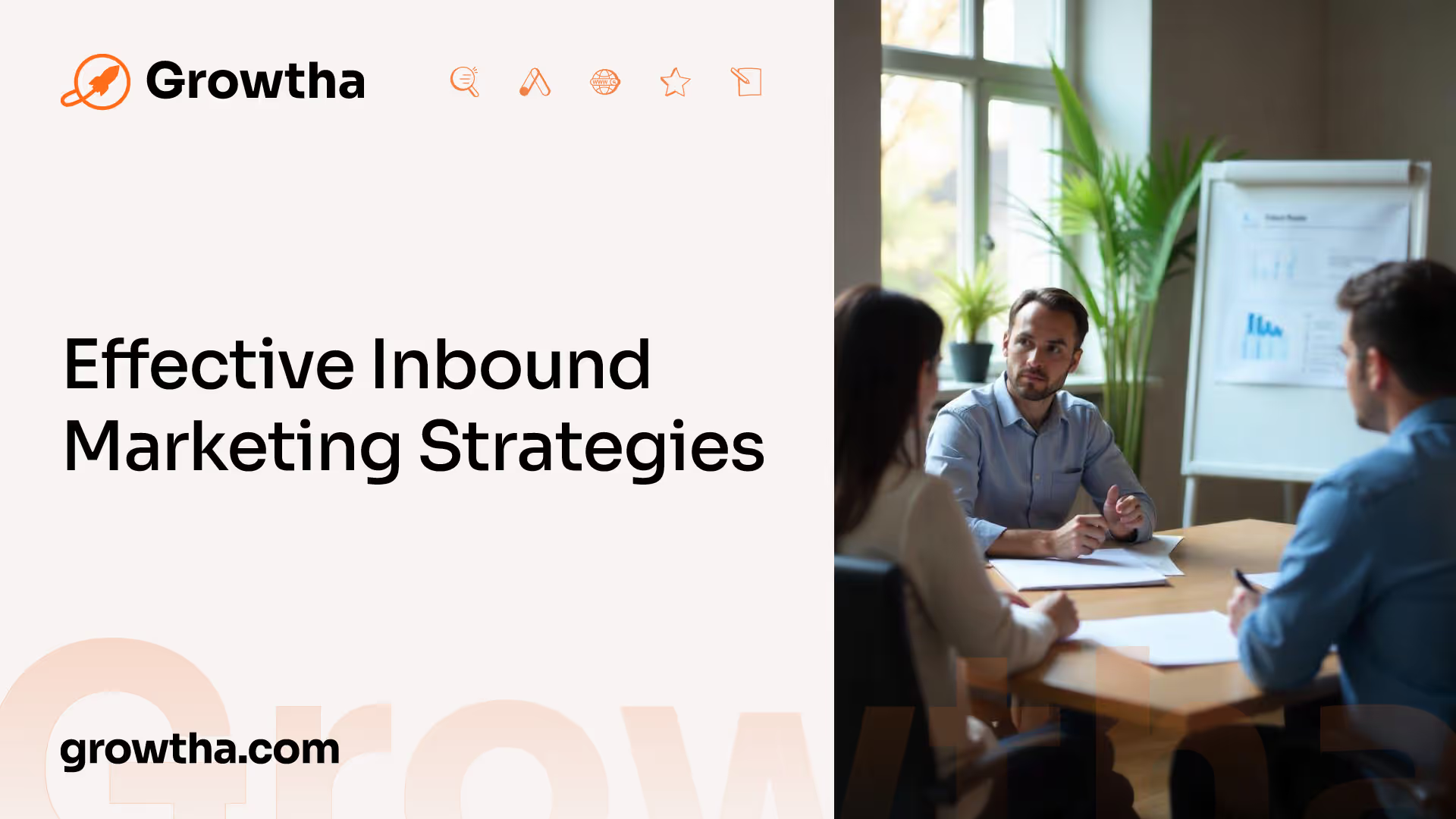
Social Media Advertising
Social media advertising is the largest segment of digital ad spending, projected to reach $155.5 billion in 2025 [3]. Platforms like Facebook, Instagram, Twitter, and LinkedIn offer businesses a powerful way to target specific demographics, engage with their audience, and drive conversions. The ability to target ads based on user interests, demographics, and behaviors makes social media advertising a popular choice for businesses of all sizes.
Video Advertising
Video advertising has become increasingly popular in recent years. The consumption of online video content continues to rise, presenting businesses with new opportunities to reach their target audience. In 2025, video advertising spending is projected to reach a substantial amount, reflecting the growing importance of this medium in digital advertising strategies.
Google Ads Performance
Google Ads remains a dominant force in the digital advertising landscape. With its vast reach and targeting capabilities, businesses have the opportunity to reach a wide audience through search ads, display ads, and video ads. Monitoring the performance of Google Ads campaigns is essential for optimizing advertising strategies and maximizing return on investment.
By staying informed about the latest trends and statistics in digital advertising, businesses can make informed decisions about their advertising strategies. Whether it's focusing on mobile advertising, leveraging social media platforms, incorporating video ads, or optimizing Google Ads performance, understanding the ever-changing digital advertising landscape is crucial for success in the online marketplace.
Effective Inbound Marketing Strategies
In the digital landscape, effective inbound marketing strategies play a vital role in attracting, engaging, and converting potential customers. These strategies encompass various tactics, including blog content creation, social media marketing, video marketing, and SEO (Search Engine Optimization).
Blog Content Creation
Blog content creation is a top priority for 55% of marketers, as it serves as a valuable tool for driving organic traffic and establishing thought leadership [4]. By consistently producing high-quality and relevant blog posts, businesses can engage their target audience, provide valuable insights, and showcase their expertise.
Through blog content, businesses have the opportunity to enhance brand visibility, build trust with their audience, and drive website traffic. By incorporating relevant keywords and optimizing content for search engines, businesses can improve their organic search rankings and attract potential customers who are actively seeking information or solutions.
Social Media Marketing
Social media has become an integral part of digital marketing strategies, with 97% of marketers utilizing these platforms to reach their audiences [4]. Social media marketing enables businesses to connect with their target audience, build brand awareness, and foster meaningful relationships.
By leveraging the power of social media platforms such as Facebook, Instagram, Twitter, and LinkedIn, businesses can engage their audience through compelling content, interactive campaigns, and community building. Social media marketing allows businesses to humanize their brand, share valuable information, and create a sense of community among their followers.
Video Marketing
The rise of video marketing has been remarkable, with 86% of businesses incorporating video as a marketing tool [4]. Video content has proven to be highly engaging and effective in capturing the attention of target audiences. It allows businesses to convey their message in a visually appealing and interactive manner.
Whether it's how-to videos, product demos, testimonials, or brand storytelling, video marketing provides a dynamic platform for businesses to showcase their products or services, educate their audience, and leave a lasting impression. With the popularity of video-sharing platforms like YouTube and the integration of videos on social media platforms, businesses can tap into the immense potential of video marketing to drive engagement and conversions.
SEO (Search Engine Optimization)
Nearly 70% of marketers consider SEO crucial for their marketing strategy, highlighting the importance of search engine optimization in digital marketing efforts [4]. SEO involves optimizing a website's content, structure, and technical aspects to improve its visibility in search engine results.
By conducting keyword research, optimizing on-page elements, improving website speed, and building high-quality backlinks, businesses can enhance their organic search rankings and increase their chances of being found by potential customers. SEO helps businesses attract targeted traffic, establish credibility, and generate leads by ensuring their website appears prominently in search engine results for relevant queries.
Incorporating these effective inbound marketing strategies into your digital marketing efforts can significantly enhance your brand's visibility, engage your target audience, and drive conversions. By consistently creating valuable blog content, leveraging the power of social media, utilizing video marketing, and optimizing your website for search engines, you can establish a solid foundation for attracting and nurturing potential customers.
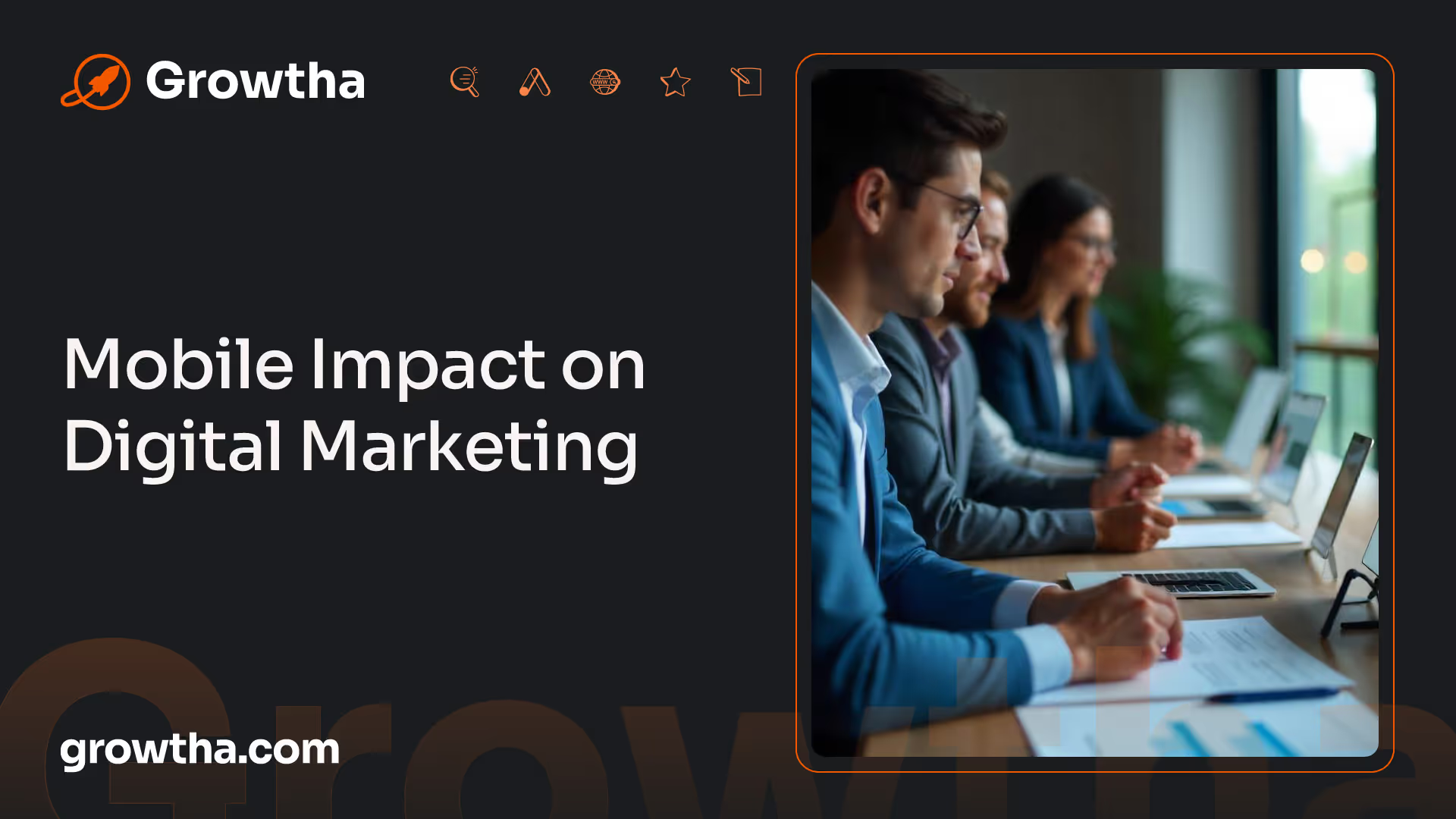
Mobile Impact on Digital Marketing
In today's digital landscape, mobile devices have had a significant impact on digital marketing strategies. With the increasing dominance of mobile web traffic, businesses need to optimize their marketing efforts to cater to mobile users.
Mobile Web Traffic
Globally, mobile web traffic accounts for a substantial portion of overall web traffic. As of 2018, mobile web traffic constituted approximately 52.2% of total web traffic [5]. This shift in consumer behavior highlights the importance of mobile optimization for businesses. Having a mobile-friendly website and ensuring a seamless user experience on mobile devices is crucial to effectively reach and engage mobile users.
Mobile Advertising
Despite the high volume of mobile web traffic, there is still a gap between user behavior and digital ad placement strategies. Only 51% of digital ads are shown on mobile devices, indicating the need for businesses to align their advertising efforts with mobile usage patterns [5]. By leveraging mobile advertising platforms and optimizing ad formats for mobile screens, businesses can effectively reach their target audience and maximize the impact of their digital ads.
Short-Form Content
Mobile devices have facilitated the consumption of short-form content through platforms like TikTok, Instagram Reels, and Stories. These platforms allow marketers to capture attention and engage with audiences through attention-grabbing, concise snippets of content. The popularity of short-form content has enhanced audience engagement, authenticity, and the ability to convey brand messages effectively.
Influencer Marketing
Influencer marketing has become a prevalent strategy in the digital marketing landscape. Businesses leverage social media influencers to promote their brands and products to their followers. Influencers can range from micro-influencers who exchange product reviews for exposure to larger influencers and celebrities who often charge for collaborations. By partnering with influencers, businesses can tap into their established audiences and leverage their credibility and influence to reach and engage with their target market [6].
Social Media Contests and Giveaways
Social media contests, giveaways, and exclusive deals have proven to be effective strategies for engaging audiences, driving website traffic, generating leads, and cultivating a social following. Brands can offer exclusive deals or limited-time offers in exchange for interactions such as likes, comments, page visits, or email submissions. These interactive campaigns create a sense of excitement and encourage user participation, helping businesses expand their online presence and reach a broader audience [6].
By understanding and leveraging the impact of mobile devices on digital marketing, businesses can adapt their strategies to effectively connect with mobile users, enhance engagement, and drive conversions. Mobile optimization, mobile advertising, short-form content, influencer marketing, and social media contests are all essential elements to consider when developing a comprehensive digital marketing plan in today's mobile-centric world.
The Power of Data in Marketing
Data has become a driving force in modern marketing strategies, providing valuable insights and opportunities for businesses to connect with their target audience.
The Growing Datasphere
The amount of data being generated globally is staggering. According to IDC, it is predicted that by 2025, the global datasphere will grow to 175 zettabytes [7]. This exponential growth in data presents immense potential for marketers to gain deeper understanding of their customers and make informed decisions based on data-driven insights.
However, despite the vast amount of data available, only a fraction of it is effectively analyzed and utilized. In fact, IDC estimates that less than 2% of the potential data is used for insights and decision-making in organizations [7]. To fully leverage the power of data, businesses must invest in effective data collection, storage, and analysis tools.
Harnessing Data for Marketing Insights
Data analytics plays a crucial role in extracting meaningful insights from the vast amount of available data. By analyzing customer behavior, preferences, and interactions, marketers can gain valuable insights that inform their marketing strategies and tactics.
Through data analysis, businesses can identify trends, patterns, and correlations that help them understand customer needs and preferences. These insights enable marketers to create personalized and targeted campaigns, resulting in higher customer satisfaction rates and increased revenue. In fact, studies have shown that personalized customer experiences driven by data analytics and AI can lead to a 10% to 20% increase in customer satisfaction rates and a 10% to 15% increase in revenue [7].
AI-Driven Marketing Strategies
Artificial Intelligence (AI) is revolutionizing the way marketers leverage data. AI-powered tools and algorithms can process vast amounts of data at incredible speed, enabling marketers to uncover valuable insights and automate processes. AI can analyze customer behavior, predict preferences, and optimize marketing campaigns for better results.
AI-driven marketing strategies help businesses deliver personalized experiences at scale. By utilizing machine learning algorithms, businesses can create highly targeted and relevant content, optimize advertising campaigns, and improve customer segmentation. This leads to more effective marketing efforts and improved return on investment.
Building Trust with Data
While data provides valuable opportunities for marketers, building trust is crucial when implementing AI-driven marketing strategies. Studies have shown that consumers are more willing to share their data if they trust a company. Therefore, marketers must prioritize transparency and ethical data practices to establish trust with their audience.
To build trust, businesses should clearly communicate their data collection and usage practices. They should also ensure compliance with data protection regulations and provide customers with control over their data. By prioritizing trust and transparency, businesses can foster long-term relationships with their customers and maximize the potential of data-driven marketing strategies.
The power of data in marketing is undeniable. As the datasphere continues to grow, businesses that effectively harness data for marketing insights, embrace AI-driven strategies, and prioritize trust will have a competitive advantage in connecting with their target audience and achieving marketing success.
References
[1]: https://digitalmarketinginstitute.com/blog/some-inspiring-uses-of-ai-in-digital-marketing
[2]: https://gravitalagency.com/blog/business-insights/the-5-highest-roi-digital-marketing-channels
[3]: https://www.statista.com/outlook/dmo/digital-advertising/worldwide
[4]: https://www.wordstream.com/blog/ws/2022/04/19/digital-marketing-statistics
[5]: https://www.investopedia.com/articles/personal-finance/062315/how-smartphones-are-changing-advertising-marketing.asp
[6]: https://www.frontporchsolutions.com/mobile-changed-social-media-marketing/
[7]: https://hbr.org/2021/07/how-to-design-an-ai-marketing-strategy







